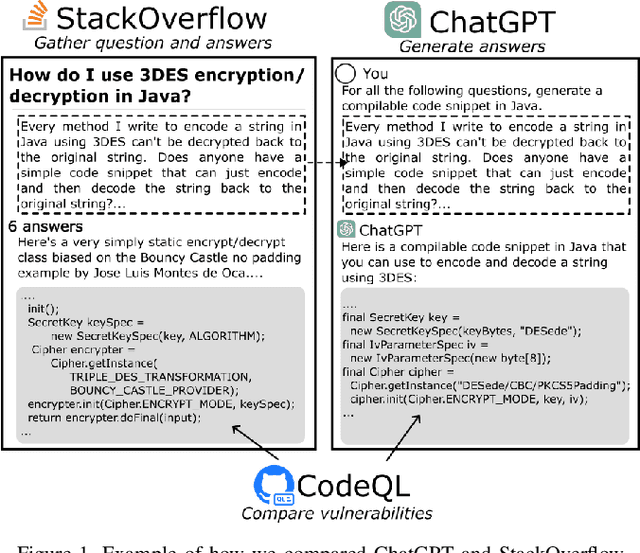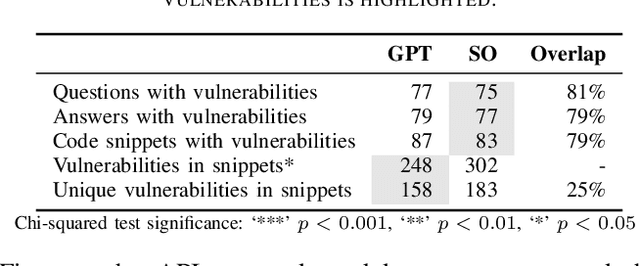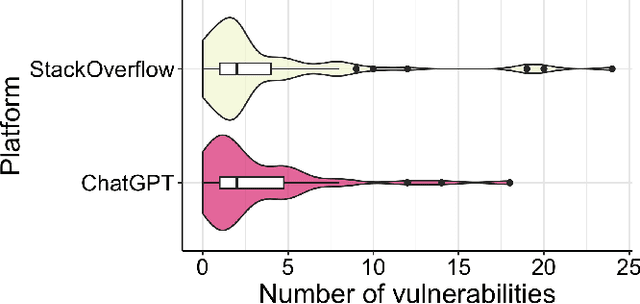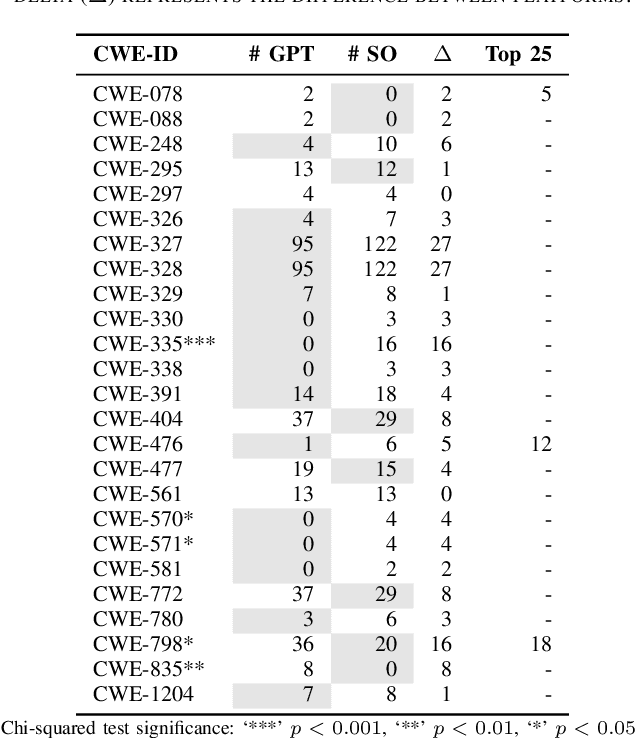Sivana Hamer
Just another copy and paste? Comparing the security vulnerabilities of ChatGPT generated code and StackOverflow answers
Mar 22, 2024



Abstract:Sonatype's 2023 report found that 97% of developers and security leads integrate generative Artificial Intelligence (AI), particularly Large Language Models (LLMs), into their development process. Concerns about the security implications of this trend have been raised. Developers are now weighing the benefits and risks of LLMs against other relied-upon information sources, such as StackOverflow (SO), requiring empirical data to inform their choice. In this work, our goal is to raise software developers awareness of the security implications when selecting code snippets by empirically comparing the vulnerabilities of ChatGPT and StackOverflow. To achieve this, we used an existing Java dataset from SO with security-related questions and answers. Then, we asked ChatGPT the same SO questions, gathering the generated code for comparison. After curating the dataset, we analyzed the number and types of Common Weakness Enumeration (CWE) vulnerabilities of 108 snippets from each platform using CodeQL. ChatGPT-generated code contained 248 vulnerabilities compared to the 302 vulnerabilities found in SO snippets, producing 20% fewer vulnerabilities with a statistically significant difference. Additionally, ChatGPT generated 19 types of CWE, fewer than the 22 found in SO. Our findings suggest developers are under-educated on insecure code propagation from both platforms, as we found 274 unique vulnerabilities and 25 types of CWE. Any code copied and pasted, created by AI or humans, cannot be trusted blindly, requiring good software engineering practices to reduce risk. Future work can help minimize insecure code propagation from any platform.
 Add to Chrome
Add to Chrome Add to Firefox
Add to Firefox Add to Edge
Add to Edge